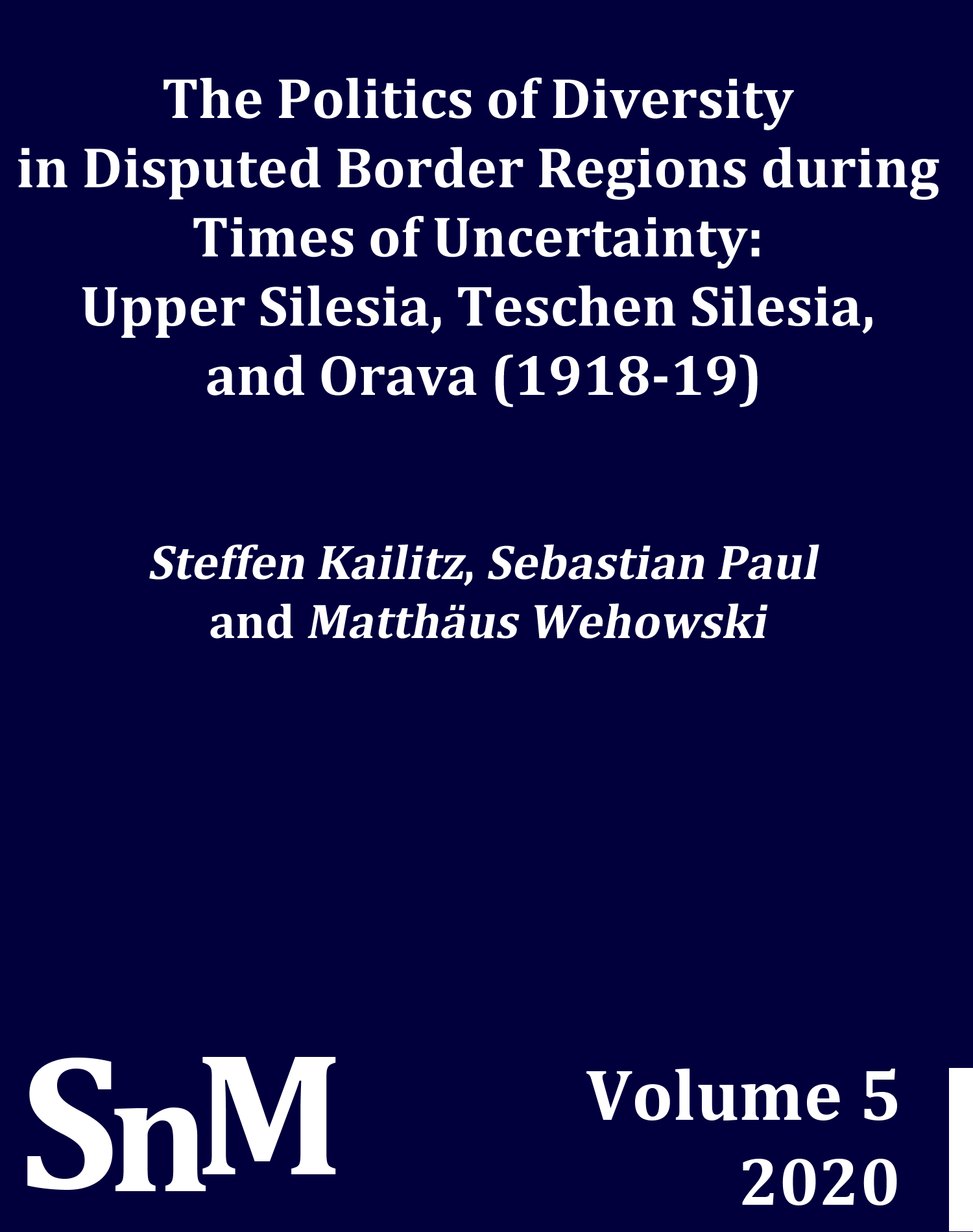The Politics of Diversity in Disputed Border Regions during Times of Uncertainty: Upper Silesia, Teschen Silesia, and Orava (1918-19)
Keywords:
democratization, nationalization, politics of diversity, transitionAbstract
Based on a discussion of the argument that there might be tensions between interwoven processes of nationalization and democratization we address the following question: Do divisions – regarding ethnic, culture as well as gender, religion and social class – hinder governance and coherent decision making in an uncertain time of transition to democracy? In our article we focus on the politics of the workers’, farmers’ and soldiers’ councils after the “Great War” 1918/19 in the multinational border regions of Upper Silesia, Teschen Silesia, and Orava. We conclude that keeping law and order as well as improving the supply situation was the councils’ main task. Even though and in spite of the prevalent phenomenon of national indifference in the regions, the question of national orientation and therefore the belonging of a region to Germany, Poland or Czechoslovakia overshadowed the councils’ policy making. Still, they had a considerable ability to reconciliate differing political interests between the national camps in the regions.

Published
How to Cite
Issue
Section
Copyright (c) 2020 Steffen Kailitz, Sebastian Paul, Matthäus Wehowski

This work is licensed under a Creative Commons Attribution 4.0 International License.
Authors who publish with this journal agree to the following terms:
- Authors retain copyright and grant the journal right of first publication with the work simultaneously licensed under a Creative Commons Attribution License that allows others to share the work with an acknowledgement of the work's authorship and initial publication in this journal.
- Authors are able to enter into separate, additional contractual arrangements for the non-exclusive distribution of the journal's published version of the work (e.g., post it to an institutional repository or publish it in a book), with an acknowledgement of its initial publication in this journal.
- Authors are permitted and encouraged to post their work online (e.g., in institutional repositories or on their website) prior to and during the submission process, as it can lead to productive exchanges, as well as earlier and greater citation of published work (See The Effect of Open Access).
